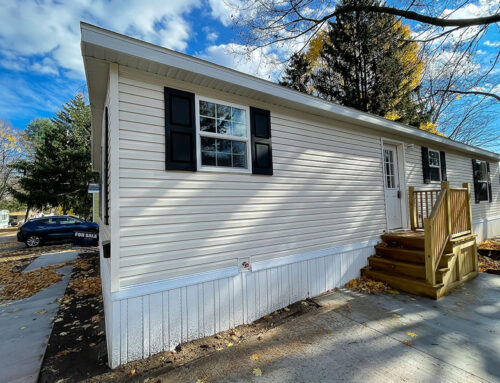“I just gave all my tenants notice that I have to raise the rent,” Julie explained at the last investment club meeting. Like many other local real estate investors, she is concerned about how the property tax revaluation in Jersey City will affect the profit margin for her rental holdings. Frankly, it’s not an unreasonable worry. The new assessments will increase holding costs for all investors, but those who maintain a significant rental portfolio will be especially hard hit. Julie is smart to plan ahead. Raising the rent will likely be an inevitable course of action in the coming months. But property owners may seek to improve their investment position by attempting to appeal the property tax assessment, thereby lowering a property’s tax rate.
How the New Jersey City Property Tax Assessment Affects Investors
The recent Jersey City property tax assessment is a double-edged sword for investors. Since the last property revaluation in 1988, values have risen significantly in this region. In fact, most homeowners are currently paying taxes on only 23.66% of their house’s current market value. But the recent state-mandated revaluation aims to remedy that. The new assessments will be completed by the end of October and many are sure to feel the resulting sticker shock when they receive their updated tax bill in the third quarter of 2018. Market trends in Jersey City are pointing to opportunities for real estate investors who may opt to buy properties from a broad base of distressed homeowners who can no longer keep up with their property taxes.
But while this news bodes well for investors, those who hold rentals, or a rental portfolio, may feel the sting. It’s one thing to absorb a property tax hike on a property that you own for a short period of time as you work to rehab and sell the home, but it’s quite another matter to realize the effects on your year-over-year cap rate for residential investments. While local property taxes may currently be deductible at the federal level, taxes do still represent a significant proportion of an investment property’s holding costs. With the recent revaluation and new assessments, it could pay off to look into whether you have a good case for an appeal.
Appealing Your Property Tax Assessment
The appeal process is somewhat arduous in Jersey City but might be worth the time and effort if the increase in your rental property’s tax assessment takes a large chunk out of your bottom-line. First, you will need to gather your evidence to understand whether the appeal is worthwhile and apt to bring results. The assessor and County Tax Board find comparables to be the most compelling. You can compile these yourself by researching recent sales on the New Jersey Association of County Tax Board’s website or other websites. But be careful when using sites such as Zillow, as they may not have the most accurate or up-to-date information. You can also get local sales data from a real estate agent. Alternatively, you can hire a professional real estate appraiser. You may not use assessments of other properties as evidence if you pursue this avenue.
You’ll need to do some research to determine if an appeal is apt to bring results. The New Jersey Division of Taxation conducts studies of sales within Jersey City to determine the Common Level Ratio, or average assessed to market value ratio. You will need to prove that your property’s market value falls more than 15% below the Common Level Ratio. The Common Level Ratio actually changes annually, so be sure to check with the assessor’s office to find out what currently applies to your situation.
In presenting evidence that your property’s assessment is unreasonable or excessive, there are a couple of nuances that investors should keep in mind:
- If your investment activity takes place as a business entity, not a sole proprietorship, and the property’s prior year’s taxes were over $25,000, then you are currently required to be represented by an attorney at the hearing. Even if you are not required to have an attorney present, it might pay dividends to get one on board.
- Be prepared to provide an itemized income and expense statement covering the last year of operations for your rental and attach it to your appeal petition. The Board may request additional years of accounting as well.
- If you hire an appraiser to support your case, they are required to be present to testify at the hearing. It is important to understand, however, that the appraiser cannot act as a representative for you. Their role is simply to explain their report.
- It is possible to avoid the hearing altogether by agreeing to a settlement with the assessor. Be aware, however, that if the assessor offers you a settlement and you reject it, then you will be heading to a hearing and at that point, the settlement offer will no longer be on the table.
At the hearing, you will be allowed to present all of your evidence and testimony but, remember, the burden of proof is on you, the property owner. The Tax Board Commissioner may either lower your tax assessment, request additional documentation, or stand behind its assessment. The whole process costs time and money but may be worthwhile if you have a strong, strategic position and plan to hold the rental property for the long-term.
Cushioning the Impact of Property Taxes
There is no doubt that the New Jersey City property tax assessments are going to shake things up for some investors in the coming year, but we need to be prepared for these kinds of eventualities. That’s why I focus on only buying properties that can deliver a sufficient profit margin; one that can withstand property tax hikes. As an independently owned and operated HomeVestors® franchisee, I use the proprietary tool ValueChek™ to complete solid valuations of each potential investment property. That way, I can provide the home seller an offer at a price that makes sense for the long-term. If you plan to take advantage of the coming market conditions to buy new investment properties, I recommend that you get in touch with HomeVestors® today.
Each franchise office is independently owned and operated.
Contact
"*" indicates required fields





